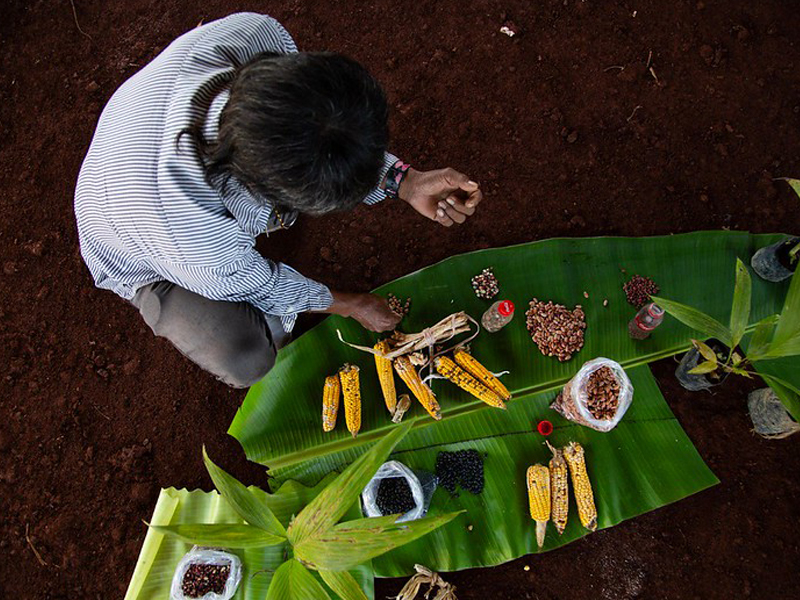
The Guarani are traditional peoples of the Brazilian Atlantic Forest and live in villages scattered throughout southern Brazil and neighboring countries. Centuries of colonization have resulted in the loss or degradation of much of their historic territory. Today, the Guarani are working to restore these lands, through planting and reforestation projects. This project with BGR partner Centro de Trabalho Indigenista (CTI) will work in 21 villages in and around the municipalities of Guaíra and Terra Roxa of western Paraná state, using tested methods to improve the physical and mental health of Guarani community members.
This project supports a pilot seedling nursery and seed exchange that together will provide farmers with access to species that have been cultivated by the Ava Guarani people for thousands of years. The project encourages the direct cultivation of traditional and chemical-free species, thus increasing biodiversity in the territory and supporting the struggle for food autonomy. A meliponiculture workshop focused on the native Jataí bee species will disseminate traditional knowledge about the native bees and the uses of honey in the Guarani culture, combined with modern beekeeping practices already used by some communities in the territory. Approximately 220 people will be directly involved in these trainings, and the entire Indigenous population of the villages will benefit.

The Guarani are traditional peoples of the Brazilian Atlantic Forest and live in villages scattered throughout southern Brazil and neighboring countries. Centuries of colonization have resulted in the loss or degradation of much of their historic territory. Today, the Guarani are working to restore these lands, through planting and reforestation projects. This project with BGR partner Centro de Trabalho Indigenista (CTI) will work in 21 villages in and around the municipalities of Guaíra and Terra Roxa of western Paraná state, using tested methods to improve the physical and mental health of Guarani community members.
This project supports a pilot seedling nursery and seed exchange that together will provide farmers with access to species that have been cultivated by the Ava Guarani people for thousands of years. The project encourages the direct cultivation of traditional and chemical-free species, thus increasing biodiversity in the territory and supporting the struggle for food autonomy. A meliponiculture workshop focused on the native Jataí bee species will disseminate traditional knowledge about the native bees and the uses of honey in the Guarani culture, combined with modern beekeeping practices already used by some communities in the territory. Approximately 220 people will be directly involved in these trainings, and the entire Indigenous population of the villages will benefit.




